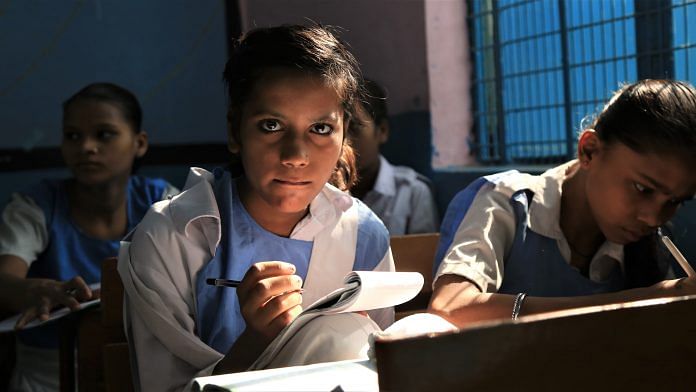New Delhi: Lead poisoning is affecting one in three children worldwide, leading to heart disease and impairing their cognitive development, according to a study published by UNICEF in collaboration with Pure Earth, a New York-based nonprofit, Thursday.
Most children impacted by lead are from Africa and Asia. Many are also from Central and South America as well as Eastern Europe.
The report has found that up to 800 million children globally have blood lead levels at or above 5 micrograms per decilitre. Levels as this, according to the World Health Organization, may be associated with decreased intelligence in children, behavioural difficulties and learning problems.
In South Asia, on average, 37 crore people (aged 0 to 19 years) have high levels of lead in their blood. It is the highest among all the continents. Similarly, around 27 crore people (aged 0 to 19 years) on average in India have dangerous levels of lead in their blood.
Not just children, adults have also been impacted by lead exposure. According to the report, the impact of lead on adults is so large that over 900,000 premature deaths every year are attributed to it.
“Lead is a potent neurological and cardiovascular toxicant that is responsible for nearly 1.5 per cent of annual global deaths (900,000). That is almost as many deaths as result from HIV/AIDS (954,000) and more than from malaria (620,000), war and terrorism (150,000) or natural disasters (90,000),” the report states.
Also read: Untreated water with high ammonia from Haryana will hit supply in parts of Delhi, says DJB
Lead exposure in daily life
One of the most worrying sources of lead exposure is “unsound recycling of used lead-acid batteries (ULABs)”, says the report. Most of these are found in cars, trucks and other vehicles.
The sources of childhood lead exposure include water from the use of leaded pipes, lead solder in food cans, and lead in spices, cosmetics, ayurvedic medicines, toys and other consumer products.
Parents whose occupations involve working with lead often bring contaminated dust home on their clothes, hair, hands and shoes. They then, inadvertently, expose their children to the toxic element.
Lead-based pottery glaze on cookware and serving dishes also remains a significant source of exposure for both children and adults.
Spices, such as turmeric, are adulterated with lead chromate to enhance their colour and weight in many countries. This can contribute significantly to elevated blood lead levels among children and adults.
The report also says that childhood lead exposure could result in a loss of nearly $1 trillion in earnings in lower and middle-income countries in Africa, Asia, Latin America and the Caribbean.
The study has also established a correlation between lead exposure and criminal behaviour. Early lead exposure can create learning disabilities and challenges that affect children’s executive functioning, impulse control, and levels of aggression.
“These conditions are often irreversible and, studies find, may affect the likelihood for violence and crime in adulthood,” it notes.
Also read: Why India needs to regulate Ayurveda to win the world market for natural remedies



